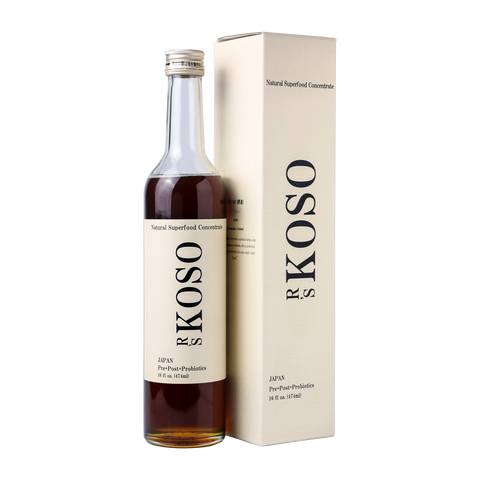Menopause is a natural phase in a woman's life, marked by the end of menstrual cycles and significant hormonal changes. While many women are aware of symptoms like hot flashes, night sweats, and mood swings, fewer understand the important connection between menopause and gut health. Maintaining a healthy gut can play a vital role in managing menopausal symptoms and supporting overall well-being during this transitional period.
The Impact of Hormonal Changes on Gut Health
During menopause, the body undergoes a decline in estrogen and progesterone levels. These hormones are not only crucial for reproductive health but also influence the gastrointestinal (GI) system. Estrogen, in particular, has been shown to impact gut motility, the balance of gut microbiota, and the integrity of the gut lining. As estrogen levels decrease, women may experience changes in digestion, including bloating, constipation, and other GI discomforts.
The Gut Microbiome and Menopause
The gut microbiome, a complex community of trillions of microorganisms residing in the intestines, plays a key role in overall health. This microbial community helps with digestion, nutrient absorption, immune function, and even the production of certain hormones and neurotransmitters. During menopause, the composition of the gut microbiome can shift, potentially leading to dysbiosis – an imbalance of beneficial and harmful bacteria.
Dysbiosis has been linked to various health issues, including increased inflammation, weakened immune function, and metabolic disturbances. These factors can exacerbate menopausal symptoms and contribute to conditions like osteoporosis, weight gain, and cardiovascular disease. Therefore, supporting a healthy gut microbiome during menopause is essential for mitigating these risks.
Benefits of Supporting Gut Health During Menopause
1. Enhanced Hormonal Balance
A healthy gut microbiome can assist in the metabolism and regulation of hormones. Certain gut bacteria can influence the reactivation and recycling of estrogen, helping to maintain hormonal balance even as natural production declines.
2. Improved Mood and Mental Health
The gut-brain axis is a bidirectional communication system between the gut and the brain. A healthy gut can positively influence mood and mental health, potentially alleviating menopausal symptoms like anxiety and depression. Foods such as R's KOSO that contain probiotics, prebiotics, and postbiotics can support a balanced gut microbiome and enhance mental well-being.
3. Better Digestion and Nutrient Absorption
Menopause can affect digestive efficiency. Supporting gut health ensures that the body continues to absorb essential nutrients effectively, which is crucial for maintaining bone density, cardiovascular health, and overall vitality during menopause
4. Reduced Inflammation
Chronic inflammation is a common issue during menopause and can contribute to various health problems. A balanced gut microbiome can help modulate the immune response and reduce systemic inflammation, providing relief from inflammatory symptoms.
How to Support Gut Health During Menopause
1. Incorporate Probiotics, Prebiotics, and Postbiotics
Probiotics are beneficial bacteria that can be found in fermented foods like yogurt, kefir, sauerkraut, and kimchi. Prebiotics are non-digestible fibers that feed these good bacteria, found in foods like garlic, onions, asparagus, and bananas. Whole foods supplements like R's KOSO, a fermented drink, can provide a convenient and effective way to introduce probiotics, prebiotics, and postbiotics into your diet.
2. Eat a Balanced Diet
Focus on a diet rich in fiber, fruits, vegetables, lean proteins, and healthy fats. Avoid processed foods, excessive sugar, and artificial additives, as these can disrupt the gut microbiome.
3. Stay Hydrated
Adequate hydration is essential for maintaining digestive health and ensuring that fiber can work effectively in the gut.
4. Manage Stress
Chronic stress can negatively impact the gut microbiome. Practices like yoga, meditation, and deep breathing exercises can help manage stress levels.
5. Exercise Regularly
Physical activity promotes healthy digestion and can help regulate the gut microbiome. Aim for regular, moderate exercise like walking, swimming, or cycling.
Conclusion
Supporting gut health during menopause is crucial for managing symptoms and maintaining overall health. By focusing on a balanced diet, incorporating probiotics, staying hydrated, and managing stress, women can navigate menopause more comfortably and healthily. R's KOSO offers a range of fermented products that can support gut health, making it easier to maintain a balanced microbiome during this transitional period. Embrace the change and prioritize your gut health to enjoy a vibrant and fulfilling life during and after menopause.
Let’s get started!

